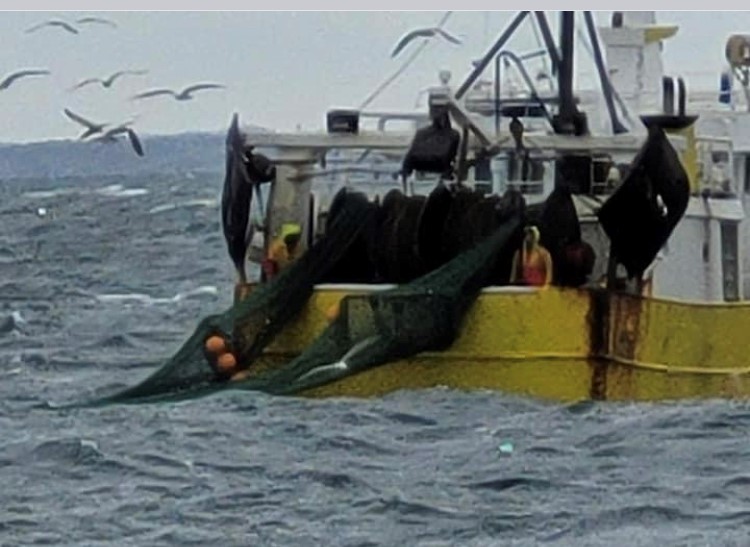Nyheter
Spanish fisheries sector warning over proposed EU diesel levies

The Spanish fishing sector warns that the establishment of a policy of levies on diesel, as contemplated in the proposal for a European Directive to restructure, within the framework of the European Green Pact, taxes on energy products would mean a serious destruction of the “fragile” balance of your activity.
In addition, it warns that in the medium term it would put the food sovereignty of our country and Europe at risk , compared to the interests of other geographical areas, such as Asia, “currently immersed in an open and unfair war to monopolize their fleets, in many illegal cases, marine resources ” , in the words of Juan Manuel Liria, president of the Spanish Fisheries Confederation (Cepesca), who participated last Friday in the II Conference on Eco-fuels , organized by the Spanish Association of Petroleum Products Operators (AOP).
Depending on the sector, the proposed Directive, which provides for a diesel tax of 3 euros per 100 litres of fuel from 2023, would impact the viability of fishing companies by assuming fuel, on average, 40% of the costs of its activity, “already with really tight margins”. The sector points out that this impact, in addition to the offshore vessels, would also affect the inshore, mostly family businesses and “true backbones of the economic and social cohesion of many coastal areas”.
In addition, and depending on the sector, the objectives set by Europe to apply this tax have already been practically achieved by the European fishing fleet, and even more so by the Spanish. It should be remembered that with this measure Europe wants to reduce 55% of the greenhouse gas emission levels of the EU fleet in 2030 with respect to those of the 1990s and encourage the application of energy efficiency improvements such as energy alternatives (hydrogen, gas, electricity and hybridization). However, the sector believes that the European Commission must be aware of the 48% reduction in the Community fishing fleet since the 1990s (compared to other third countries that are developing their fleets exponentially) and that the sector’s emissions have been reduced by 18% during the last 10 years.
Food sovereignty
In addition to the direct impact on the economic activity of fishing companies, this measure will put European food sovereignty and our country at risk in the medium term. In this regard, the sector points out that the supply of cheaper diesel in other non-EU ports will cause fleets to stop operating in Spanish and EU ports vis-à-vis third parties , which would induce a shortage of raw materials and the consequent loss of sovereignty food that we currently have, as is the case in Spain thanks to the coverage of our fleets. To this, the sector points out, we should add the loss of thousands of jobs since the alternative ports would monopolize all the assets generated by the fishing activity, such as cold storage centres, processing plants and a large part of the value chain.
According to the sector, Europe must be very attentive to the silent and strategic battle that is being waged in the control of the world’s fishing resources in the face of the challenge of increasing food production by 56% for a global population that is expected to grow between 2,500 and 3,000 million people by 2050, and to do so by keeping the target level of global warming for the planet below 2 ° C. In this sense, and according to the World Resources Institute (WRI), this can only be achieved by increasing the intake of protein from fishery products due to its low environmental impact compared to other agri-food industries on land. .
New fuels
Finally, and according to Cepesca, the fishing fleet is a segment of very difficult decarbonisation, apart from that achieved so far, due to the great autonomy that its activity requires, only possible through the use of hydrocarbons with high energy density. For the sector, the development of alternative fuels to the current ones is far behind in terms of their production and distribution, but also in terms of the technology necessary for their storage and use, which is why it believes that it is difficult to fulfil the objectives of the Treaty of Paris by 2050, and even more so the EU intermediate target of reducing net emissions by 55% by 2030.
On the other hand, and depending on the sector, the on-board storage of all the alternative fuels that are being postulated (hydrogen, LNG, LPG, Ammonia, Methanol, Ethanol, etc.), would need special facilities, so the design would be necessary. of new vessels, specific for each type of energy.
Even so, the sector wants to continue making progress in meeting the decarbonisation commitments, so, apart from the measures already adopted to reduce consumption, it supports the development of more neutral fuels, such as biofuels. With this objective, Cepesca has joined the Platform for the Promotion of Eco-fuels, created to promote the use of renewable and carbon-neutral liquid fuels as a complementary route for decarbonisation. Currently, more than 322,000 companies and about twenty business associations from different sectors of activity are part of this platform, with a very representative weight of the agri-food industry.
Källa: The Fishing Daily



